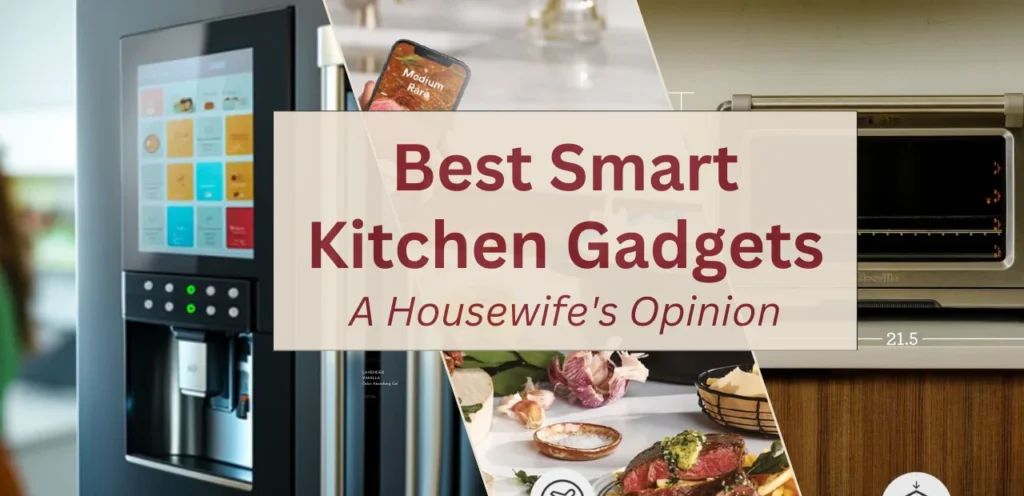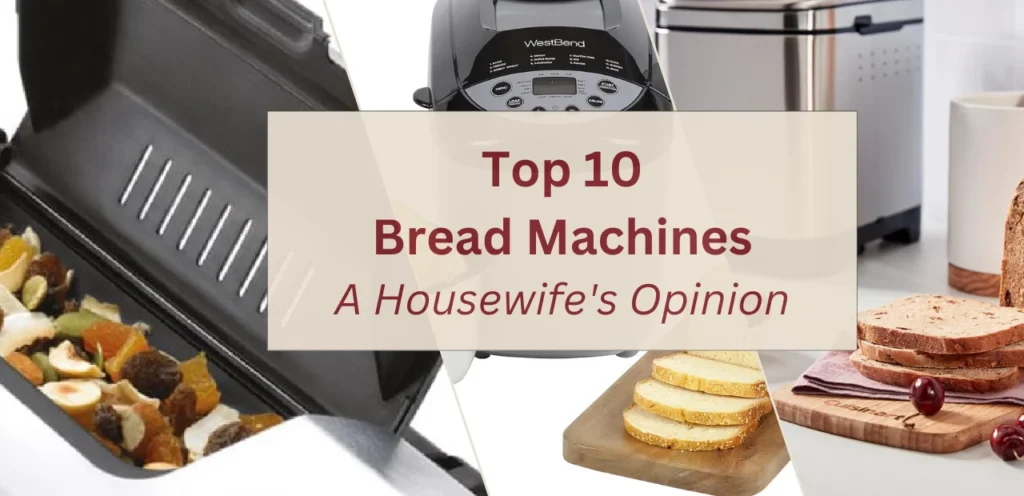
Within the last couple of years, the kitchen has become a place for technological innovation; smart gadgets claim to change the way we prepare and eat our food. In 2024, the smart kitchen gadgets market continues to soar, with an estimated $43 billion projection by 2027. Against the backdrop of this formidable growth, one question begs itself: are smart kitchen gadgets really worth their investment price to both consumers and professionals?
This article seeks to achieve an all-rounded analysis of smart kitchen technology through its definition, examination of the current market offerings, and weighing advantages versus disadvantages towards integrating these devices into modern kitchens.
What are Smart Kitchen Gadgets
Smart kitchen gadgets are defined as appliances and tools that integrate advanced technologies such as artificial intelligence, internet connectivity, and smartphone integration to enhance cooking processes, improve efficiency, and offer increased functionality compared to their traditional peers.
These devices are characterized by their ability to:
- Connect to home Wi-Fi networks.
- Communicate with other smart devices.
- Be controlled remotely via smartphone applications.
Collect and analyze data to optimize performance. - Provide real-time information and updates to users.
The development of smart kitchen technology has been fast. Early versions, such as the very first smart refrigerators to hit the market, were more of a novelty and really didn’t have much functionality to their practical use. It wasn’t until recently that sophisticated, useful, and tangibly beneficial devices started being developed.
Smart Kitchen Gadgets: Current 2024 Market Offerings
To really be able to understand the potential value of smart kitchen gadgets, there is an absolute need to consider some of the most innovative devices that are currently available on the market today:
Best Smart Refrigerators
Modern smart refrigerators serve as multifunctional hubs for kitchen management. Key features include:
- Internal cameras for remote viewing of contents
- AI-powered expiration date tracking
- Automated grocery list generation
- Recipe suggestions based on available ingredients
- Integration with meal planning applications
Best Smart French Door Refrigerator: LG Smart Refrigerator
Most Versatile Fridge: Samsung Stainless Steel French Door Refrigerator
- High-Efficiency LED Lighting Illuminates Virtually Every Corner*
- Twin Cooling Plus Keeps Foods Fresher Longer
Best AI-Enabled Ovens
These advanced cooking appliances utilize artificial intelligence to optimize cooking processes:
- Food recognition technology for automatic temperature and cooking time settings
- Remote monitoring and control via smartphone applications
- Multi-zone cooking capabilities for preparing various dishes simultaneously
- Integration with recipe databases for guided cooking experiences
Best Countertop Smart Oven: Breville Joule Smart Oven Air Fryer Pro
- The Breville Joule Oven Air Fryer Pro is a connected countertop air fryer oven that features 13 pre-set smart cooking functions powered by the Element IQ system to steer power when and where it’s needed for beautifully cooked food that’s crisp, juicy and full of flavor
- Introducing Breville+: Open a world of instant mastery with 1000+ guided recipes, live and on-demand classes, cook guides and more. Featuring recipes from leading food content experts, all tested and tuned exclusively for your Breville appliance
Best Connected Sous Vide Devices
These gadgets bring professional-grade cooking techniques to home kitchens:
- Precise temperature control for consistent results
- Remote monitoring and control via smartphone applications
Integration with recipe databases for guided cooking
Programmable cooking schedules for meal planning
Best Sous Vide Precision Cooker: Anova Culinary Sous Vide Precision Cooker
- Perfect results every time: Never over or under cook your food again. The Anova Precision Cooker circulates water at the exact temperature required for perfectly cooked meals, no matter what’s on your menu. Use the Anova app to access thousands of free recipes and monitor your cook from anywhere via your smartphone.Power 1100 Watts.Power 1100 Watts
- What to cook: Sous vide (pronounced “sue-veed”) cooking offers the perfect level of doneness for nearly any food. Chicken, fish, vegetables, eggs, beef, lamb, pork and more are all ideal foods for sous vide. The ability to lock in flavor and moisture during the cooking process results in texture and taste that is second to none.
Most Efficient Sous Vide Machine: Breville Joule Turbo Sous Vide Machine
- The Breville Joule Turbo Sous Vide provides an automated cooking experience powered by Breville+, simplifying meal time. This powerful sous vide machine makes cooking easy, especially when cooking meat. Just put it on Autopilot and let it do all the work for you
- Introducing Breville+: Open a world of instant mastery with 1000+ guided recipes, live and on-demand classes, cook guides and more. Featuring recipes from leading food content experts, all tested and tuned exclusively for your Breville appliance
Advantages of Investing in Smart Kitchen Gadgets
The integration of smart technology into kitchen appliances offers several potential benefits:
- Time Efficiency: Smart gadgets can significantly reduce the time required for various kitchen tasks through automation and optimization of cooking processes. This efficiency is particularly valuable for individuals with busy lifestyles or those who frequently entertain.
- Precision and Consistency: AI-powered devices can provide more accurate temperature control and timing, resulting in consistently high-quality culinary outcomes. This precision can be especially beneficial for complex or technical cooking techniques.
- Energy Efficiency: Many smart appliances are designed to optimize energy consumption, potentially leading to reduced utility costs and a smaller carbon footprint. This aligns wit growing consumer interest in sustainable living practice.
- Remote Control and Monitoring: The ability to control and monitor kitchen devices remotely offers unprecedented convenience. Users can preheat ovens, start coffee makers, or checkrefrigerator contents from anywhere with an internet connection.
- Customization and Personalization: Smart gadgets often allow for a high degree of customization, enabling users to tailor cooking experiences to their preferences and dietary requirements.
- Integration with Smart Home Ecosystems: For those invested in smart home technology, kitchen gadgets can seamlessly integrate with existing systems, creating a more cohesive and efficient living environment.
Disadvantages and Considerations
Notwithstanding the potential benefits, here are some important factors to consider before investing in smart kitchen technology:
- Initial Cost: Many of these smart kitchen gadgets do have a premium price tag over the traditional ones. It acts as a prohibition to any consumer who considers cost carefully for its long-term value creation.
- Technical Complexity: Advanced features of smart gadgets may introduce some learning curve to the user, more so to those who are less comfortable with technology, and this might lead them to frustration, hence underutilizing the capabilities available on the device.
- Reliability and Maintenance: Like other technology-based products, smart kitchen gadgets may be affected by software glitches, connectivity problems, or hardware failures that will require troubleshooting by technical experts, thus disrupting the functionality of the kitchen.
- Privacy and Security Concerns: The data collection features and the associated internet connectivity raise important concerns around user privacy and associated security risks. Consumers need to balance the convenience against the risks of data sharing.
- Dependency on External Systems: Most smart kitchen gadgets rely on Wi-Fi, smartphone apps, and the cloud to work to their full potential. This leaves them in a compromised state during internet loss or smartphone malfunction.
- Rapid Technological Advancement: The high pace of change in technology could render smart kitchen gadgets obsolete very quickly; thus, newer models shall be required even more often to be up-to-date and functional.
User Experiences and Market Reception
Consumer feedback and market research provide valuable insights into the practical implications of adopting smart kitchen technology:
Smart Refrigerators: Generally well-received, users liked remote viewing and the expiration tracking function. However, qualms about the cost of repairs and reliability in the long term have been raised.
AI-Enabled Ovens: People who love cooking have received them positively, with improved culinary results reported. The very high price point acts as a major inhibitor to mass adoption.
Connected Sous Vide Devices: Home chefs and food hobbyists showed eager adoption, but casual cooks found very little interest due to the nature of the specialized cookery method.
Making an Informed Decision
While incorporating smart kitchen gadgets into a kitchen, several aspects are to be considered by the individual or professional.
- Cooking Habits and Frequency: Determine how a kitchen would be used and how frequently. Here, in this case, users using it frequently or users who make varying experimental cuisine may find smart gadgets more functional.
- Budget Constraints: Understand the cost investment upfront with the savings or advantages one is likely to get in the future. Estimates for future maintenance and replacement costs would be beneficial in this regard.
- Technology Expertise: Assess new technology’s comfort levels and willingness to learn new systems. Ensure that the household or staff can maximize features available.
- Space and Infrastructure: Consider the available space in the kitchen and existing infrastructure. Ensure that what’s installed at the moment allows for new devices and needed connectivity.
- Specific Needs and Pain Points: Determine particular problem areas where smart technology could make major improvements or remedy existing problems in the kitchen workflow.
- Long-term Value Proposition: Consider whether smart gadgets’ features are relevant to your long-term cooking or other life goals.
Conclusion
Overall, smart kitchen gadgets represent a dramatic change in how we approach food preparation and kitchen management. While these devices offer impressive capabilities with potential benefits, their value proposition changes depending on the individual situation and preference.
For active consumers who are fond of cooking and who have a penchant for modern technologies, smart kitchen gadgets offer an attractive return on investment. Automation, increasing the precision of actions, and integrating kitchen activities into broader smart home systems – this entire culinary experience became more streamlined and enjoyable.
For others who seek simplicity or have certain budget constraints, advanced features of smart gadgets could not justify additional cost and complexity. In such scenarios, investments made in high-quality traditional appliances or cooking skills might be of better value.
Ultimately, smart kitchen technology investment should be founded on careful analysis of personal needs, comfort level in using technology, and long-term goals that pertain to the kitchen. In this market, which is continuing to evolve—actually becoming more competitive in price—the value proposition may change; hence their relevance for the modern kitchen has to be under constant assessment.
As in the case of every major investment, smart kitchen gadgets ought to be determined by thorough research, considerations based on personal situations, and the weighing of their pros and cons to ensure it is prudent in enhancing one’s culinary experience and kitchen efficiency.
Smart Kitchen Appliances: FAQs
What is the demand for smart kitchen appliances?
The demand for smart kitchen appliances is steadily increasing, driven by convenience and connectivity. In 2024, the global market is expected to grow significantly, especially in smart ovens, refrigerators, and dishwashers.
What smart appliances are worth it?
Smart refrigerators, ovens, and dishwashers are worth the investment, offering features like remote control, energy efficiency, and advanced functionality. They enhance convenience and can save time in the kitchen.
What is the most essential kitchen equipment?
Essential kitchen equipment includes a good-quality chef’s knife, cutting board, and cookware. These basics are crucial for any cooking task.







